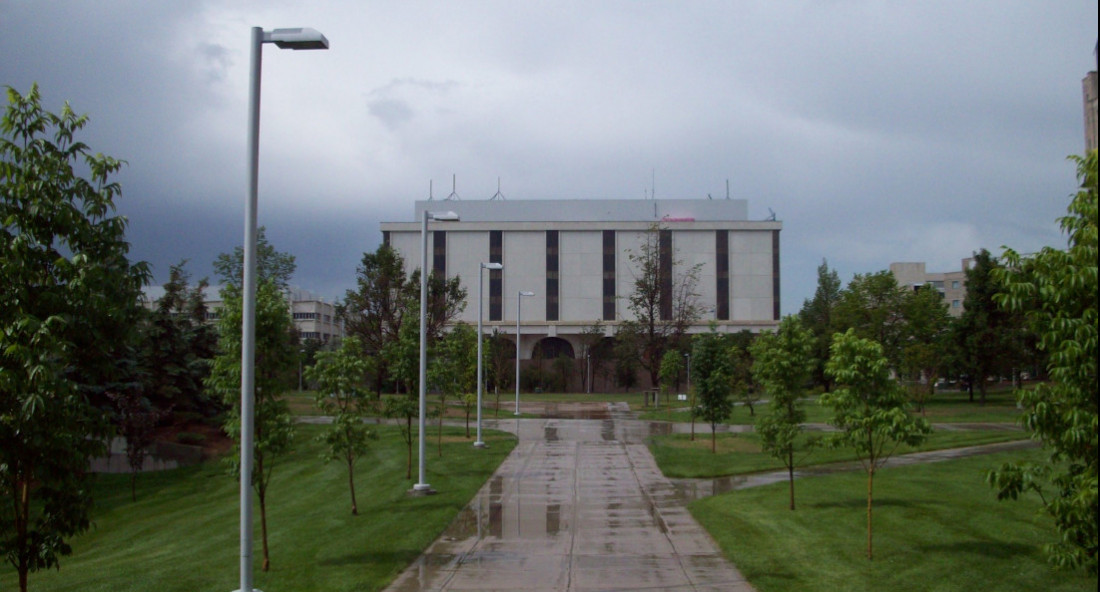Institutionalized racism and academic misconduct
Discrepancy in universities’ responses suggest bias against BIPOC, international students

This library building stands on the University of Regina campus. The university faced controversy in May after a professor sent a racist email to students.
In many cases, academic misconduct is something professors discuss on the first day of classes – but individual instances of academic dishonesty aren’t often spoken about by the greater campus community.
The consequences for plagiarism or cheating are serious. However, each instance is judged on a case-by-case basis, and BIPOC students (especially international students) tend to face disproportionate allegations of academic misconduct.
Recently, a fourth-year education student at the University of Winnipeg (U of W) was sentenced to a one-year academic suspension after attending an April anti-mask rally at The Forks. However, a few days after the university announced this decision, the student’s punishment was thrown out, and they were allowed to return to their teaching placement.
Many were left asking questions: if the U of W administration is unable to make a final decision about this student’s case, how can any academic misconduct and behavioural misconduct rules truly be understood by students and staff as set-in-stone policy?
In many cases across Canada, faculty and staff are not held accountable for their racist prejudices against BIPOC students, specifically international students.
This was displayed in May at the University of Regina, when Allan L. L. East, a chemistry professor, sent an email to 14 students, accusing them of cheating.
“I could not help but notice that all 14 of you cheaters have East Indian last names,” East wrote in an email to students, stating that they would all receive a failing grade. “You must not cheat in Canada. Canadians do not like cheaters.”
Aysha Yaqoob, a University of Regina graduate student and anti-racism advocate who was informed of this email approximately two weeks after it was received by students, says “some of them were not international students, but just had names that looked too foreign to the professor.” She then organized a mass email campaign to ensure the professor was held accountable by the administration.
Some students who received this email told Yaqoob they did not cheat and were certain it was the fault of Proctortrack, the online proctoring software required by the university during online examinations. However, other students stayed silent for fear of possible repercussions.
“From my personal experience, when I have had to deal with racism at the university, I’ve never felt comfortable reporting it to the right people,” Yaqoob says. “The one time I tried it was written off.”
She says some people have reached out to stress that “it’s hard to report instances of racism to folks who are white, because they don’t understand.”
The University of Regina administration sent a uniform response to all students who participated in the email campaign and hosted a 30-minute meeting with the accused students. Yaqoob, however, says “People of Colour don’t have any more time to wait ... we can’t be patient anymore.”
Reza Hossain, the University of Winnipeg Students’ Association vice-president student affairs and president of the University of Winnipeg International Students’ Union, says there has been an increase in the number of international students at the university. “We would like to see the university increasing its supports and resources for the international students to help them succeed,” he says.
Actions like East’s are ones that will follow students for the rest of their lives and continue to perpetuate institutionalized racism. Students and faculty across the country need to analyze how their disciplinary systems disproportionately punish Students of Colour.
If a student is facing academic-misconduct allegations, they can reach out to the UWSA vice-president student affairs for advocacy-centred assistance. If the student believes they are facing prejudice, they are invited to request intervention from the University’s Human Rights and Diversity office.
Published in Volume 76, Number 4 of The Uniter (October 1, 2021)






